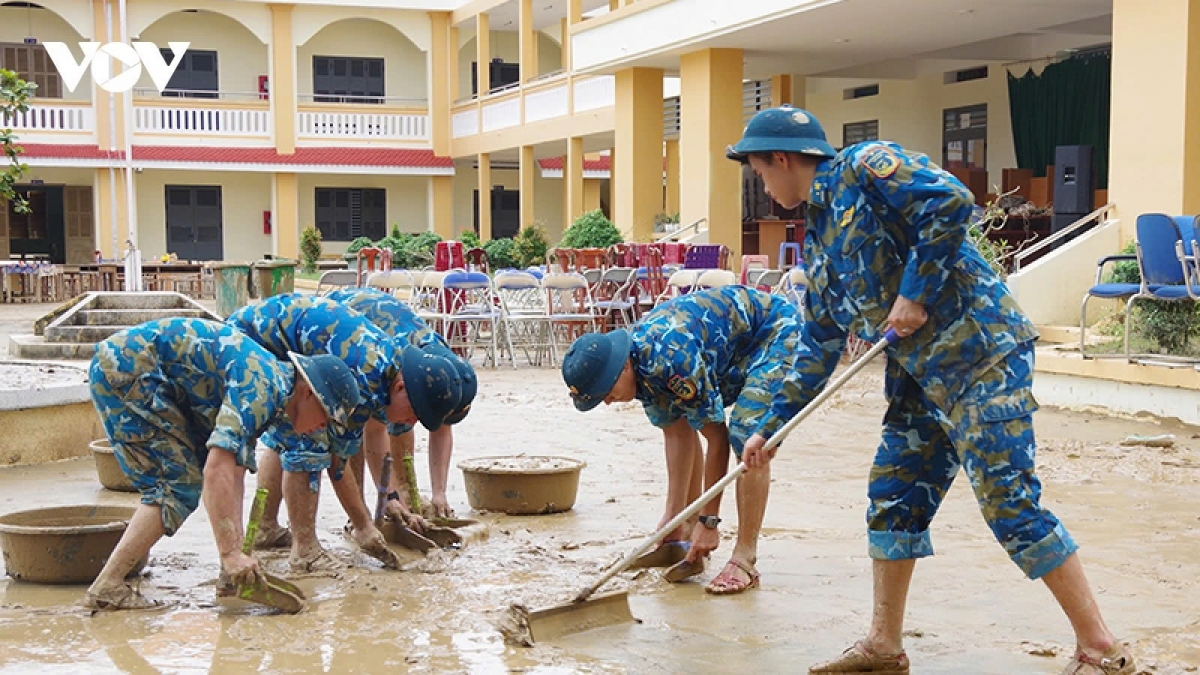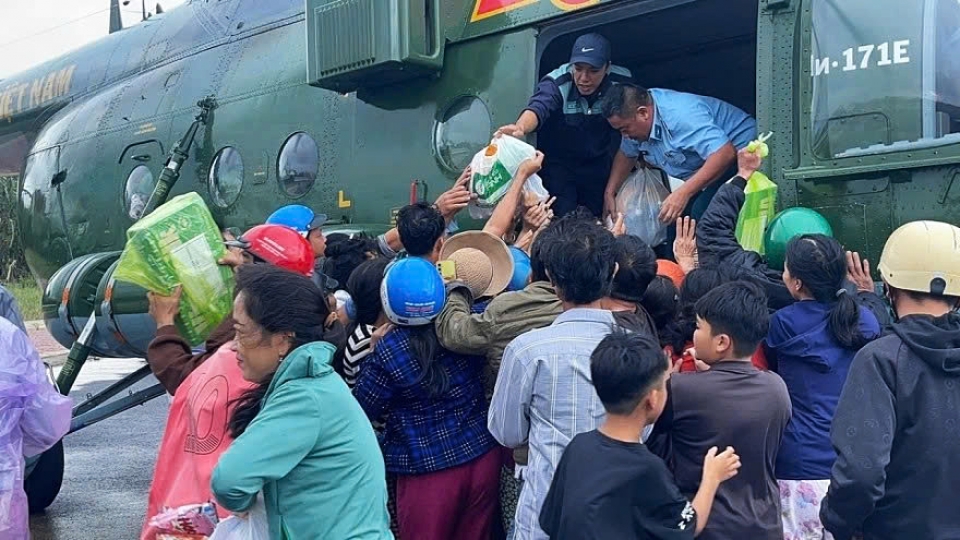Flood-recovery measures stepped up in Central Vietnam
VOV.VN - Prime Minister Pham Minh Chinh has signed a telegram, instructing relevant ministries, sectors and provinces to urgently focus on overcoming the consequences of the recent floods, restoring production and business activities, and stabilising people’s livelihoods in the central region.

The telegram was addressed to the Party Secretaries and Chairpersons of the People’s Committees of Gia Lai, Dak Lak, Khanh Hoa and Lam Dong provinces, as well as the ministers and leaders of central agencies.
According to the telegram dated November 23, the region experienced exceptionally heavy and prolonged rainfall which triggered historic flooding and serious landslides, especially in Khanh Hoa, Dak Lak, Gia Lai and Lam Dong. The Politburo, the Secretariat, the Government and the Prime Minister have maintained continuous leadership and early-stage intervention. Several Politburo members and Deputy Prime Ministers were dispatched to the affected areas to inspect, encourage the people and direct relief operations.
Thanks to the prompt mobilisation of the entire political system, losses were minimized. However, the prolonged rainfall combined with high tides caused catastrophic flooding, severely affecting human lives, homes, assets and public infrastructure such as schools, hospitals, transportation routes, irrigation works, power supplies and telecommunications.
The floods have killed or left missing 102 people, collapsed, destroyed or severely damaged over 1,100 houses, destroyed more than 80,000 hectares of rice and crops, and resulted in losses of over 3.2 million head of livestock and poultry; economic losses are estimated at approximately VND 9,035 billion.
On behalf of the Party and the State leadership, the Prime Minister expressed his deepest condolences to families who lost loved ones and extended his encouragement to local authorities and people in the disaster-stricken areas.
With rainfall having subsided and floodwaters having receded, localities are now instructed to concentrate their efforts on the recovery phase. The Prime Minister directed provincial leaders to assign specific responsibilities to members of their Standing Committees, to deploy to the grassroots level—especially places previously isolated or deeply flooded—to obtain accurate situation reports and lead the “rapid, urgent and effective” implementation of recovery measures.
All households that were isolated must be reached by every available means, with immediate provision of food, clean water and essential supplies. No one should be left hungry, thirsty or cold, says the telegram. At the same time local authorities must facilitate search and rescue for missing persons, provide treatment to those injured and support funeral arrangements for victims.
In parallel, swift cleanup and sanitation of homes, roads, schools, health centres and factories must be carried out, and essential services—electricity, water, telecommunications, health and education—must be fully restored by November 30, 2025.
Temporary housing must be arranged for affected households, and with the assistance of the armed forces and public security forces major repairs should be completed by November 30, 2025. Reconstruction or relocation of homes that collapsed or suffered severe damage must be completed by January 31, 2026.
The telegram demands comprehensive and accurate damage assessments, with localities proactively deploying available resources to support affected individuals in accordance with regulations. Relief supplies must be received and distributed in a centralised, transparent and fair manner to reach those in need as quickly as possible. The public should be informed of urgent-need items so that organisations and individuals can direct meaningful assistance.
The Prime Minister also assigned specific tasks to several ministries. The Ministry of National Defence must deploy additional forces and equipment to transport relief supplies and arrange helicopters and unmanned aerial vehicles to drop supplies into areas cut off. The Ministry of Public Security must mobilise police forces and local security units to support disaster mitigation and the resumption of business operations.
The Ministry of Agriculture and Environment must guide the restoration of agricultural production, supply inputs, livestock and seedlings, repair dams and reservoirs and review flood-management operations for long-term safety. The Ministry of Finance must review damage, propose urgent and long-term recovery solutions, submit a draft Government Resolution on disaster recovery by November 26, 2025, implement tax and fee relief for affected organisations and individuals, and direct insurance firms to expedite compensation.
The Ministry of Education and Training must restore school operations and enable students to return to classes as soon as possible, compile damage data on schools and report to the Prime Minister by November 30, 2025, and provide books and teaching equipment to students in flood-affected areas.
The Ministry of Health must ensure continuous medical service provision, supply medicines, equipment and disinfectants, dispatch medical teams to localities to prevent post-flood epidemics, and coordinate with the World Health Organisation on urgent external assistance.
The Ministry of Construction must promptly clear landslide-affected segments of expressways, national highways and major roads, and review long-term traffic-safety solutions. The Ministry of Industry and Trade must restore power supply in affected communes, support industrial production recovery, ensure the supply of essential goods and prevent hoarding or speculative price increases.
The Ministry of Science and Technology must require telecommunications companies to prioritise restoration of communications infrastructure by November 30, 2025. The State Bank of Vietnam must direct credit institutions to implement debt relief, loan rescheduling and interest-rate reductions for affected individuals and enterprises.
Media outlets were asked to closely follow local conditions and constantly report on relief operations and recovery progress, while the Vietnam Fatherland Front Committee was urged to mobilise social support. Deputy Prime Ministers were assigned direct oversight over recovery operations in the four provinces to ensure continuous, focused and effective leadership.





